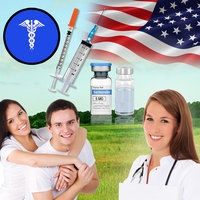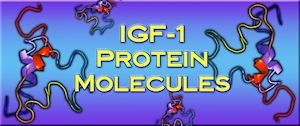Introduction to Late-Onset Hypogonadism
Late-onset hypogonadism (LOH), also known as age-related low testosterone, is a clinical and biochemical syndrome associated with advancing age and characterized by a deficiency in serum testosterone levels. This condition can lead to a variety of symptoms including decreased libido, erectile dysfunction, decreased muscle mass, increased body fat, and mood disturbances. While aging is a primary factor in the development of LOH, emerging research suggests that chronic stress may play a significant role in exacerbating this condition among American males.
The Physiology of Stress and Testosterone
Stress triggers a cascade of hormonal responses, primarily through the activation of the hypothalamic-pituitary-adrenal (HPA) axis. When an individual experiences stress, the body releases cortisol, a stress hormone that can have a suppressive effect on testosterone production. Chronic elevation of cortisol levels can disrupt the delicate balance of the endocrine system, leading to a sustained decrease in testosterone. This physiological interplay is particularly relevant for American men, who often face high levels of stress due to work, financial pressures, and societal expectations.
Stress and Lifestyle Factors in American Males
American men are frequently exposed to high-stress environments, which can be attributed to demanding careers, familial responsibilities, and the cultural emphasis on success and achievement. These stressors can lead to poor lifestyle choices such as inadequate sleep, poor diet, and lack of physical activity, all of which can further contribute to the development and worsening of LOH. The prevalence of obesity, a known risk factor for low testosterone, is also higher among stressed individuals, creating a vicious cycle that can exacerbate the symptoms of LOH.
Clinical Evidence Linking Stress to LOH
Several studies have highlighted the association between chronic stress and reduced testosterone levels. For instance, a study published in the *Journal of Clinical Endocrinology & Metabolism* found that men with higher perceived stress levels had significantly lower testosterone concentrations. Another research piece in the *International Journal of Impotence Research* demonstrated that stress-related psychological factors were strongly correlated with symptoms of LOH, suggesting that stress management could be a crucial component of treatment strategies.
Managing Stress to Mitigate LOH
Given the strong link between stress and LOH, effective stress management becomes an essential strategy for American men looking to maintain healthy testosterone levels. Techniques such as mindfulness meditation, regular physical exercise, and cognitive-behavioral therapy have been shown to reduce stress and improve overall well-being. Additionally, fostering a supportive social network and engaging in hobbies can provide emotional relief and reduce the impact of chronic stress on testosterone levels.
The Role of Healthcare Providers
Healthcare providers play a pivotal role in identifying and addressing LOH in American men. Routine screening for testosterone levels, especially in men presenting with symptoms of LOH, can facilitate early detection and intervention. Moreover, healthcare professionals should be attuned to the psychosocial aspects of their patients' lives, offering guidance on stress management and lifestyle modifications as part of a comprehensive treatment plan.
Conclusion: A Holistic Approach to LOH
The relationship between stress and late-onset hypogonadism underscores the need for a holistic approach to managing this condition. American men must be aware of the impact of chronic stress on their hormonal health and take proactive steps to mitigate its effects. By integrating stress management techniques with medical interventions, men can improve their quality of life and potentially slow the progression of LOH. As research continues to evolve, the medical community must remain vigilant in exploring the multifaceted nature of LOH and its treatment.
In summary, the exacerbation of late-onset hypogonadism by stress is a significant concern for American males. Understanding and addressing the interplay between stress and testosterone levels can lead to better health outcomes and a higher quality of life for those affected by this condition.
Contact Us For A Fast And Professional Response

- Exploring Alternative Therapies for Late-Onset Hypogonadism in American Males [Last Updated On: February 20th, 2025] [Originally Added On: February 20th, 2025]
- Economic Impact of Late-Onset Hypogonadism on American Men's Healthcare [Last Updated On: March 16th, 2025] [Originally Added On: March 16th, 2025]
- Nutrition's Role in Managing Late-Onset Hypogonadism in American Males [Last Updated On: March 17th, 2025] [Originally Added On: March 17th, 2025]
- Managing Late-Onset Hypogonadism: Symptoms, Diagnosis, and Treatment for American Men [Last Updated On: March 18th, 2025] [Originally Added On: March 18th, 2025]
- Late-Onset Hypogonadism: Symptoms, Diagnosis, and Treatment in American Males [Last Updated On: March 19th, 2025] [Originally Added On: March 19th, 2025]
- Genetic Predisposition and Ethnic Impact on Late-Onset Hypogonadism in American Males [Last Updated On: March 19th, 2025] [Originally Added On: March 19th, 2025]
- Late-Onset Hypogonadism: Effects on Male Fertility and Management Strategies [Last Updated On: March 20th, 2025] [Originally Added On: March 20th, 2025]
- Understanding Late-Onset Hypogonadism: Symptoms, Detection, and Management in American Males [Last Updated On: March 20th, 2025] [Originally Added On: March 20th, 2025]
- Late-Onset Hypogonadism: Impact on Muscle Mass in American Men and Management Strategies [Last Updated On: March 20th, 2025] [Originally Added On: March 20th, 2025]
- Managing Late-Onset Hypogonadism: Detection, Lifestyle, and Hormone Therapy in American Men [Last Updated On: March 20th, 2025] [Originally Added On: March 20th, 2025]
- Late-Onset Hypogonadism: Effects on Mood, Energy, and Quality of Life in American Men [Last Updated On: March 20th, 2025] [Originally Added On: March 20th, 2025]
- Advancements in Late-Onset Hypogonadism Treatment: Emerging Therapies and Personalized Medicine [Last Updated On: March 21st, 2025] [Originally Added On: March 21st, 2025]
- Late-Onset Hypogonadism: Symptoms, Diagnosis, and Management Strategies for American Men [Last Updated On: March 21st, 2025] [Originally Added On: March 21st, 2025]
- Exercise Strategies to Combat Late-Onset Hypogonadism in Aging American Males [Last Updated On: March 21st, 2025] [Originally Added On: March 21st, 2025]
- Late-Onset Hypogonadism: Symptoms, Long-Term Effects, and Management in American Men [Last Updated On: March 23rd, 2025] [Originally Added On: March 23rd, 2025]
- Hormone Replacement Therapy for Late-Onset Hypogonadism: Benefits, Risks, and Future Directions [Last Updated On: March 23rd, 2025] [Originally Added On: March 23rd, 2025]
- Exploring the Link Between Late-Onset Hypogonadism and Diabetes in American Males [Last Updated On: March 23rd, 2025] [Originally Added On: March 23rd, 2025]
- Late-Onset Hypogonadism: Understanding TRT, Side Effects, and Alternative Treatments [Last Updated On: March 23rd, 2025] [Originally Added On: March 23rd, 2025]
- Late-Onset Hypogonadism: Symptoms, Monitoring, and Management in American Males [Last Updated On: March 24th, 2025] [Originally Added On: March 24th, 2025]
- Late-Onset Hypogonadism: Impacts on American Men's Relationships and Treatment Options [Last Updated On: March 24th, 2025] [Originally Added On: March 24th, 2025]
- Late-Onset Hypogonadism: Impacts on Cognitive Function and Management Strategies [Last Updated On: March 24th, 2025] [Originally Added On: March 24th, 2025]
- Early Intervention Benefits for Late-Onset Hypogonadism in American Men [Last Updated On: March 24th, 2025] [Originally Added On: March 24th, 2025]
- Late-Onset Hypogonadism in American Males: Symptoms, Diagnosis, and Management Strategies [Last Updated On: March 25th, 2025] [Originally Added On: March 25th, 2025]
- Managing Late-Onset Hypogonadism: Holistic Approaches and Treatment Strategies [Last Updated On: March 25th, 2025] [Originally Added On: March 25th, 2025]
- Understanding Late-Onset Hypogonadism: Diagnosis and Management for American Males [Last Updated On: March 25th, 2025] [Originally Added On: March 25th, 2025]
- Late-Onset Hypogonadism in American Men: Symptoms, Diagnosis, and Management Strategies [Last Updated On: March 25th, 2025] [Originally Added On: March 25th, 2025]
- Late-Onset Hypogonadism in American Men: Symptoms, Diagnosis, and Management Strategies [Last Updated On: March 25th, 2025] [Originally Added On: March 25th, 2025]
- Managing Late-Onset Hypogonadism: Diet and Nutrition Strategies for American Men [Last Updated On: March 25th, 2025] [Originally Added On: March 25th, 2025]
- Late-Onset Hypogonadism: Understanding, Stigma, and Treatment in American Males [Last Updated On: March 25th, 2025] [Originally Added On: March 25th, 2025]
- Late-Onset Hypogonadism: Impact on Sexual Health and Management Strategies for American Men [Last Updated On: March 25th, 2025] [Originally Added On: March 25th, 2025]
- Emotional Journey of American Men with Late-Onset Hypogonadism: Challenges and Support [Last Updated On: March 25th, 2025] [Originally Added On: March 25th, 2025]
- Late-Onset Hypogonadism: Impact on Sleep and Management Strategies for American Men [Last Updated On: March 25th, 2025] [Originally Added On: March 25th, 2025]
- Managing Late-Onset Hypogonadism: Symptoms, Diagnosis, and Treatment in Aging Men [Last Updated On: March 26th, 2025] [Originally Added On: March 26th, 2025]
- Late-Onset Hypogonadism in Aging American Males: Symptoms, Diagnosis, and Multidisciplinary Management [Last Updated On: March 26th, 2025] [Originally Added On: March 26th, 2025]
- Dispelling Myths: Understanding and Managing Late-Onset Hypogonadism in American Men [Last Updated On: March 26th, 2025] [Originally Added On: March 26th, 2025]
- Understanding and Managing Late-Onset Hypogonadism in American Men: Symptoms, Diagnosis, and Treatment [Last Updated On: March 26th, 2025] [Originally Added On: March 26th, 2025]
- Community Support Enhances Life Quality for Men with Late-Onset Hypogonadism [Last Updated On: March 26th, 2025] [Originally Added On: March 26th, 2025]
- Untreated Late-Onset Hypogonadism: Health Risks and Importance of Early Intervention in US Men [Last Updated On: March 27th, 2025] [Originally Added On: March 27th, 2025]
- Financial Burden of Late-Onset Hypogonadism in American Men: Costs and Management [Last Updated On: March 27th, 2025] [Originally Added On: March 27th, 2025]
- Advanced Technologies Revolutionizing Late-Onset Hypogonadism Diagnosis in American Males [Last Updated On: March 27th, 2025] [Originally Added On: March 27th, 2025]
- Understanding Late-Onset Hypogonadism: Diagnosis and Management for American Men [Last Updated On: March 27th, 2025] [Originally Added On: March 27th, 2025]
- Cultural Perceptions and Management of Late-Onset Hypogonadism in American Men [Last Updated On: March 27th, 2025] [Originally Added On: March 27th, 2025]
- Understanding and Managing Late-Onset Hypogonadism in American Men: Symptoms, Diagnosis, and Treatment [Last Updated On: March 27th, 2025] [Originally Added On: March 27th, 2025]
- Late-Onset Hypogonadism: Impacts on American Men's Careers and Cognitive Function [Last Updated On: March 28th, 2025] [Originally Added On: March 28th, 2025]
- Managing Late-Onset Hypogonadism: Preserving Independence in American Men [Last Updated On: March 28th, 2025] [Originally Added On: March 28th, 2025]
- Advocating for Better Late-Onset Hypogonadism Care: A Guide for American Men [Last Updated On: March 28th, 2025] [Originally Added On: March 28th, 2025]
- Legal Rights and Workplace Accommodations for American Men with Late-Onset Hypogonadism [Last Updated On: March 28th, 2025] [Originally Added On: March 28th, 2025]
- Managing Late-Onset Hypogonadism: Symptoms, Diagnosis, and Treatment for American Men [Last Updated On: March 28th, 2025] [Originally Added On: March 28th, 2025]
- Late-Onset Hypogonadism: Diagnosis, Treatment, and Management Strategies for American Men [Last Updated On: March 29th, 2025] [Originally Added On: March 29th, 2025]
- Holistic Management of Late-Onset Hypogonadism: Integrating Mental Health Support [Last Updated On: March 30th, 2025] [Originally Added On: March 30th, 2025]
- Late-Onset Hypogonadism: Family Support and Management Strategies for American Males [Last Updated On: March 30th, 2025] [Originally Added On: March 30th, 2025]
- Navigating Insurance Coverage for Late-Onset Hypogonadism in American Men [Last Updated On: April 1st, 2025] [Originally Added On: April 1st, 2025]
- Managing Late-Onset Hypogonadism: Lifestyle Strategies for American Men [Last Updated On: April 2nd, 2025] [Originally Added On: April 2nd, 2025]
- Late-Onset Hypogonadism: Peer Support's Role in Enhancing Men's Health and Well-being [Last Updated On: April 5th, 2025] [Originally Added On: April 5th, 2025]
- Late-Onset Hypogonadism in American Males: Symptoms, Treatment, and Lifestyle Management [Last Updated On: April 5th, 2025] [Originally Added On: April 5th, 2025]
- Late-Onset Hypogonadism: Impact on Self-Esteem and Treatment Options for American Men [Last Updated On: April 5th, 2025] [Originally Added On: April 5th, 2025]
- Managing Late-Onset Hypogonadism: Stress Reduction Strategies for American Men [Last Updated On: April 6th, 2025] [Originally Added On: April 6th, 2025]
- Late-Onset Hypogonadism: Social Impacts and Management Strategies for American Men [Last Updated On: April 7th, 2025] [Originally Added On: April 7th, 2025]
- Late-Onset Hypogonadism in American Men: Advocacy and Management Strategies [Last Updated On: April 8th, 2025] [Originally Added On: April 8th, 2025]
- Research Advances in Late-Onset Hypogonadism: Diagnosis, Treatment, and Safety in the US [Last Updated On: April 9th, 2025] [Originally Added On: April 9th, 2025]
- Nutritionists' Role in Managing Late-Onset Hypogonadism Through Diet and Key Nutrients [Last Updated On: April 9th, 2025] [Originally Added On: April 9th, 2025]
- Managing Late-Onset Hypogonadism: Symptoms, Screening, and Treatment for American Men [Last Updated On: April 9th, 2025] [Originally Added On: April 9th, 2025]
- Late-Onset Hypogonadism: Symptoms, Diagnosis, and Treatment in American Males [Last Updated On: April 10th, 2025] [Originally Added On: April 10th, 2025]
- Exercise as a Key Strategy for Managing Late-Onset Hypogonadism in American Men [Last Updated On: April 10th, 2025] [Originally Added On: April 10th, 2025]
- Managing Late-Onset Hypogonadism: Strategies for American Men's Mental Health [Last Updated On: April 11th, 2025] [Originally Added On: April 11th, 2025]
- Late-Onset Hypogonadism: Emotional Impacts and Management Strategies for American Men [Last Updated On: April 13th, 2025] [Originally Added On: April 13th, 2025]
- Endocrinologists' Vital Role in Managing Late-Onset Hypogonadism in American Men [Last Updated On: April 14th, 2025] [Originally Added On: April 14th, 2025]
- Managing Late-Onset Hypogonadism: A Guide for American Men's Healthcare Navigation [Last Updated On: April 14th, 2025] [Originally Added On: April 14th, 2025]
- Late-Onset Hypogonadism: Understanding, Diagnosing, and Treating Age-Related Testosterone Decline [Last Updated On: April 15th, 2025] [Originally Added On: April 15th, 2025]
- Understanding and Managing Late-Onset Hypogonadism in Aging American Men [Last Updated On: April 16th, 2025] [Originally Added On: April 16th, 2025]
- Navigating Late-Onset Hypogonadism: Community Resources and Support for American Men [Last Updated On: April 17th, 2025] [Originally Added On: April 17th, 2025]
- Therapists' Crucial Role in Managing Late-Onset Hypogonadism in American Males [Last Updated On: April 18th, 2025] [Originally Added On: April 18th, 2025]
- Holistic Management of Late-Onset Hypogonadism in American Men: Diet, Exercise, and More [Last Updated On: April 18th, 2025] [Originally Added On: April 18th, 2025]
- Managing Late-Onset Hypogonadism: Symptoms, Diagnosis, and Treatment Options for American Men [Last Updated On: April 19th, 2025] [Originally Added On: April 19th, 2025]
- Late-Onset Hypogonadism: Impact on American Men's Professional Performance and Management Strategies [Last Updated On: April 19th, 2025] [Originally Added On: April 19th, 2025]
- Managing Late-Onset Hypogonadism: Lifestyle Strategies for American Men's Health [Last Updated On: April 20th, 2025] [Originally Added On: April 20th, 2025]

















